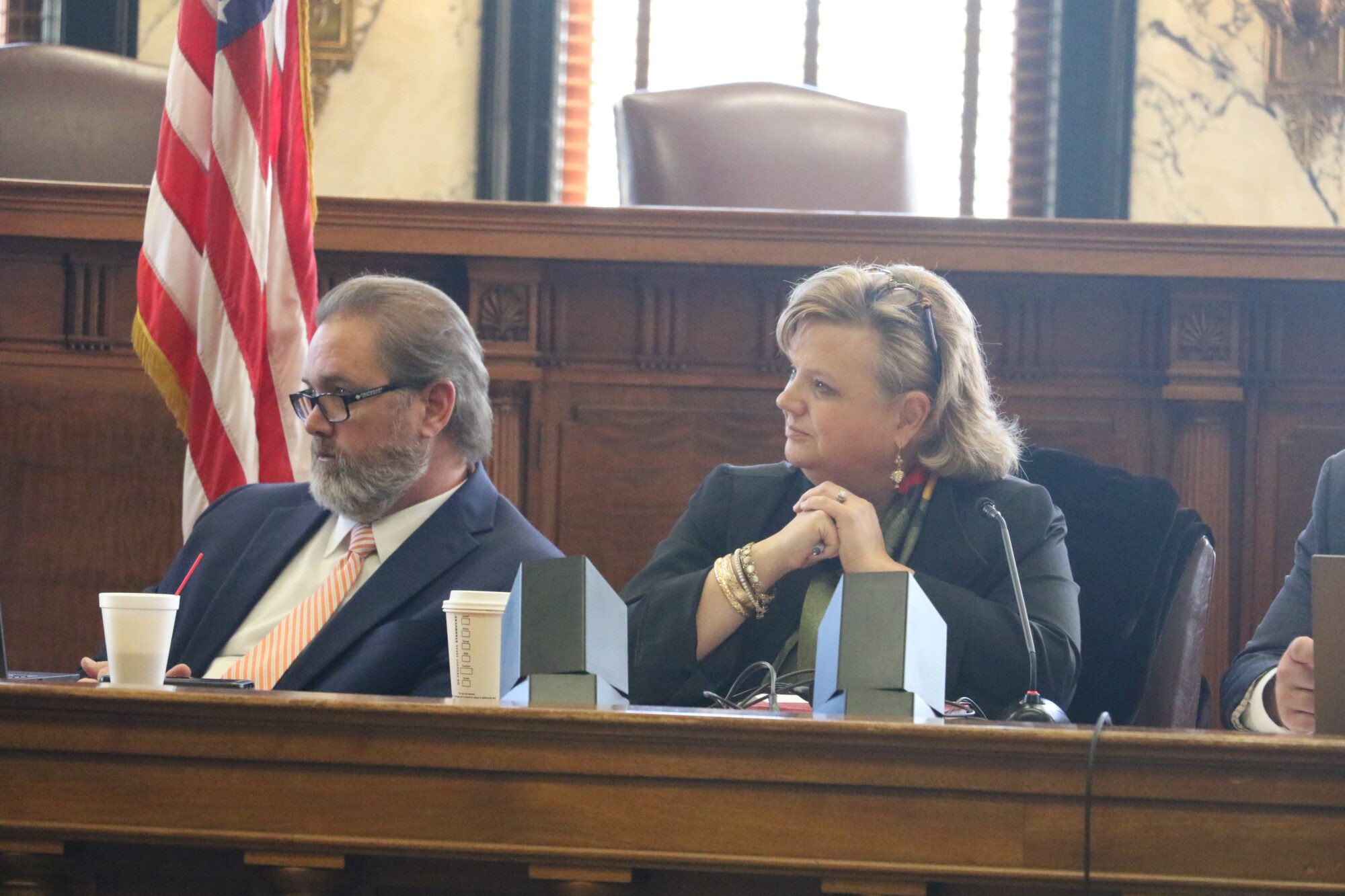RELEASE:
A number of misleading claims are being used by critics of the Student Success Act (H.R. 5) to derail K-12 education reform. The following information will explain my support and how the Student Success Act will reduce the federal footprint and restore local control over elementary and secondary education.
Claim: H.R. 5 cements Common Core into federal law.
FACT: The Student Success Act prohibits any agent of the federal government – including the Secretary of Education – from coercing states into adopting Common Core?? (or other specific standards) through waivers, federal grants, or any other authority.
FACT: Leading conservative education organizations and long-time critics of the Common Core, including the Home School Legal Defense Association and the American Association of Christian Schools, have endorsed the Common Core prohibitions included in the Student Success Act.
FACT: The Student Success Act is a conservative response to President Obama’s Common Core overreach. The federal government must not dictate what academic standards can and cannot be taught in schools. The Student Success Act protects the right of states to reject Common Core, free from federal coercion.
Claim: H.R. 5 continues the No Child Left Behind era of federally-mandated standards, assessments, and accountability.
FACT: The Student Success Act repeals the one-size-fits-all accountability metric, giving states freedom to choose how best to evaluate their schools.
FACT: Under the Student Success Act, states are responsible – not the federal government – for developing academic standards in reading, math, and science, and evaluating student and school performance against those standards.
FACT: The Student Success Act rolls back the highly prescriptive accountability metrics of NCLB, while ensuring policies are in place to protect federal taxpayers’ dollars.
Claim: H.R. 5 is fiscally irresponsible.
FACT: The Student Success Act eliminates 69 programs authorized under current law.? The bill replaces the current maze of programs with a Local Academic Flexible Grant so states and school districts allocate resources in a way that meets local priorities, not Washington’s priorities.
FACT: Under the Student Success Act, federal spending on K-12 education programs will be less than what is currently authorized for just the Title I program, and the bill freezes that level of annual spending for the next six years.
FACT: The Student Success Act requires the Secretary of Education to reduce the department’s workforce by the amount of staff currently assigned to implement the programs eliminated under the bill (saving taxpayers $10 million) and includes other policies (authored by Rep. Dave Brat (R-VA)) aimed at lowering spending as the number of federal mandates is reduced.
Claim: H.R. 5 continues NCLB mandates dictating school improvement and state and local spending.
FACT: The Student Success Act repeals mandates in current law that dictate how much money school districts must spend on federally-mandated school improvement activities.
FACT: Under the Student Success Act, states – not the federal government – would create strategies to improve failing schools. There are no federal requirements dictating what state-created school turnaround strategies must look like.
FACT: The Student Success Act repeals NCLB’s prescriptive and limited menu of school improvement activities dictated by the federal government. Instead of this top-down approach, states would use federal funds to improve underperforming schools, free from any federal influence.
Claim: H.R. 5 forces every state to participate in the programs under the bill.
FACT: The Student Success Act includes a specific provision allowing states to opt-out of the policies adopted under the bill. Authored by Rep. Scott Garrett (R-NJ), the specific legislative text reads:
Any State that opts out of receiving funds, or that has not been awarded funds, under one or more programs under this Act shall not be required to carry out any of the requirements of such program or programs, and nothing in this Act shall be construed to require a State to participate in any program under this Act.
FACT: The Student Success Act is clear: Any state that does not want to comply with any requirement under any program in the bill is free to opt out.
FACT: The Student Success Act rejects the “blank check” approach advocated by some who believe federal dollars should be spent with zero taxpayer accountability. The bill strikes the right balance by rejecting calls to micromanage schools and ensuring schools are transparent with parents and community leaders about how taxpayer dollars are used.
Claim: H.R. 5 requires states to waive their sovereignty.
FACT: The Student Success Act supports the right of every state to opt out of any program under the law. No state is compelled to participate in any program under the bill.
FACT: The Student Success Act includes an “opt-in” provision that relies on the state legislature to affirm it wants to participate in the policies established under the bill. This ensures parents and local leaders have an opportunity to make their voices heard with state leaders about the direction of education policy in their home states.
FACT: The Student Success Act includes numerous provisions that prevent the Secretary of Education from meddling in state and local affairs, including matters involving standards, Common Core, assessments, and a state’s decision to opt-out of the system.
Claim: H.R. 5 tramples on parental rights.
FACT: The Student Success Act empowers parents to have greater control over the quality of education in their neighborhood schools. In no way does the bill allow the federal government to limit the rights of parents under the law.
FACT: Nothing in the Student Success Act limits or transfers parents’ rights to the government.
FACT: Empowered parents are absolutely critical if students are to receive an excellent education. That is why the Student Success Act continues support for magnet schools, expands access to quality charter schools, and allows federal funds to follow low-income children to the traditional public or public charter school of the parent’s choice.
Claim: H.R. 5 is an assault on the nation’s religious, private, and home schools.
FACT: The Student Success Act protects the autonomy of religious schools, private schools, and home schools by ensuring they are free from the Secretary of Education’s control. The bill includes long-standing policy that prohibits any control or monitoring of private schools by the federal government.
FACT: The Student Success Act includes a long-standing policy known as “equitable participation,” which provides low-income students attending religious schools, private schools, and home schools their fair share of federal services offered under the law, such as math tutoring. This does not allow the federal government to monitor or influence any aspect of non-public schools.
FACT: The Student Success Act continues long-standing policies that require equitable participation to be delivered in a non-secular manner. This only applies to the actual services provided to students as agreed to by the private and public schools providing the services. In no way does this require schools to abandon their religious beliefs.
Claim: H.R. 5 erodes student privacy.
FACT: The Student Success Act ensures every grantee under the law not only understands the importance of protecting student privacy, but is aware of their responsibilities to protect student privacy under the Family Educational Rights and Privacy Act, (FERPA).
FACT: The Student Success Act makes no changes to FERPA, which has been the controlling law on student privacy for 40 years. The law includes strict limits on the use or sharing of a student’s personally identifiable information.
FACT: House Republicans are committed to strong student privacy protections. FERPA was written before laptops, iPads, and smart boards were in America’s classrooms. Congress must update the law to ensure student privacy protections reflects the realities of modern technology.
God Bless,
Gregg Harper
Member of Congress
2/26/15







